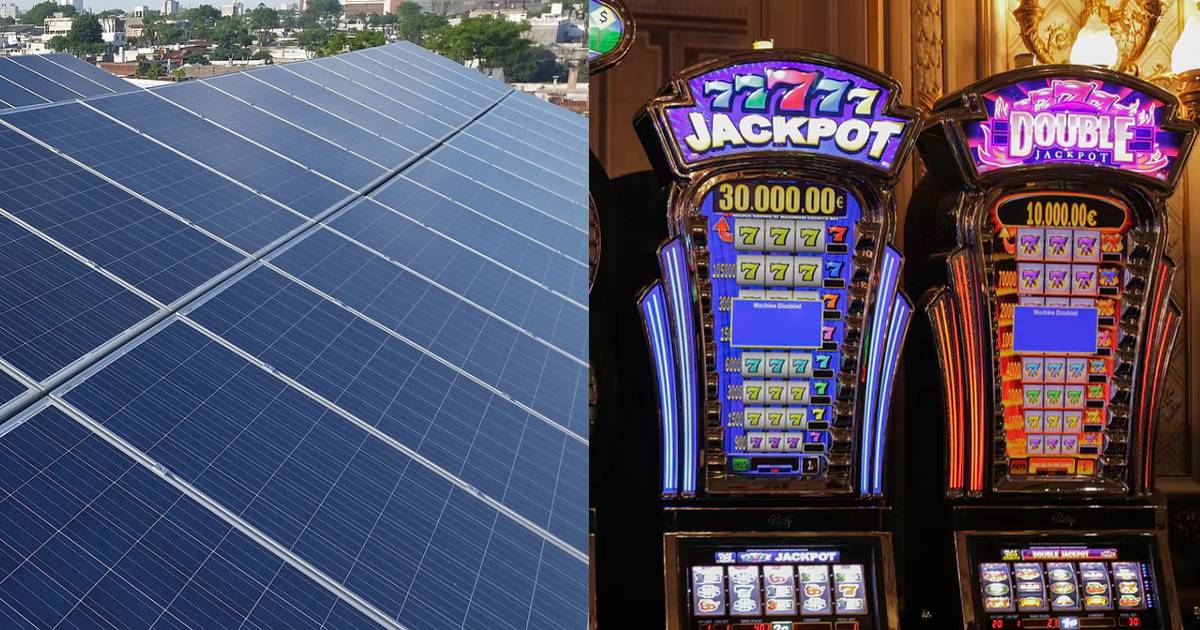A program in the ACT will help clubs reduce not only their emissions and energy bills, but also reliance on revenue from gaming machines.
In recent years, the ACT Government capped the number of pokie authorisations in the Territory to 4,000. But that’s still a lot when you consider the ACT only has a population of around 430,000 – it would work out to more than one machine for every 100 adults.
Pokies are attractive to clubs in the ACT (and elsewhere) as a way of covering costs of club operations; and then some. A major expense for many of these organisations is electricity. But like using coal power for electricity generation, using pokies as a way of helping to pay power bills has some rather nasty side effects in terms the effects on problem players, their families and the wider community.
Commercial solar can provide a way to cover electricity costs in an environmentally- and community-friendly way. For example, a 100kW rooftop system installed in Canberra can be expected to generate around 150,000 kWh of clean electricity annually. Australia’s solar rebate, which is also available to clubs, can knock up to tens of thousands of dollars off the up-front cost of a system.
But there are also other programs that can support the installation of solar panels on club premises.
ACT Community Clubs Building Energy Efficiency Program
The ACT Government’s Community Clubs Building Energy Efficiency program is part of an ongoing project to reduce gambling harm by supporting community clubs in diversifying their business models and reduce reliance on poker machine revenue, as well as playing a role in the ACT’s drive towards a zero emissions future.
The program provides eligible clubs with rebates of up to $75,000 on an equal contribution basis to upgrade to more energy efficient products and systems. These can include rooftop solar and battery storage systems, and upgrading inefficient appliances including air conditioners and hot water systems to more energy efficient models.
“This program supports community clubs to make energy and cost-efficient choices so they can continue playing their important role in the community,” said ACT Minister for Emissions Reduction Shane Rattenbury.
To access the cash, clubs need to undergo an energy efficiency assessment that will identify where improvements can be made and advise on solutions that may be of most benefit in helping the organisation reduce energy use and costs.
According to the ACT Government, 16 clubs have already registered for the program, and so far eight of have had assessments completed at their premises.
Further information on this program and others relating to energy efficiency in the ACT can be found on the Everyday Climate Choices website.
Trivia: Typical electronic gaming machines draw 100-250 Watts. By giving pokies the flick in favour of solar, the removal of machines just in itself can go a long way to reducing a club’s electricity bills.
If you or someone you care about is having problems with gambling, a bunch of support resources can be found here.


 RSS - Posts
RSS - Posts



What share of club and pub power usage is after solar generation crashes for the day? I see batteries can be part of the package, but would the maths work? Would businesses need to rely on exporting heaps when it’s sunny, then use the FiT to pay the evening power bill?
It’s an interesting idea, I’m just not convinced that a metaphorical ‘healthy lunch’ will convince those used to relying on ‘crack cocaine’.